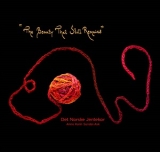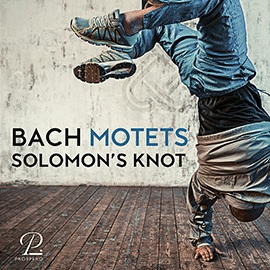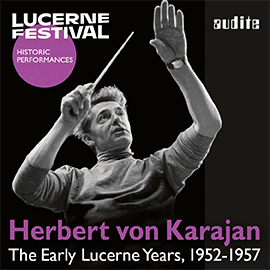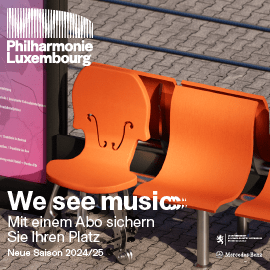 The Beauty That Still Remains; Marcus Paus: The Beauty That Still Remains (2015) text by Anne Frank; Maja S.K. Ratkje: Asylos (2013) text by Aasne Linnestå and Simone Weil; Frode Haltli, Akkordeon, Marianne Beate Kielland, Mezzosopran, Nora Aleksandra Lindeman Katla, Sopran, Det Norske Jentekor, Anne Karin Sundal-Ask, Schola Sanctae Sunnivae, Anne Kleivset; 1 Pure Audio Blu-ray / 1 SACD Hybrid 2L 157-SABD; Aufnahme 2018/2019, Veröffentlichung 03/04/2020 (D), 17/01/2020 (UK) - (72') - Rezension von Norbert Tischer
The Beauty That Still Remains; Marcus Paus: The Beauty That Still Remains (2015) text by Anne Frank; Maja S.K. Ratkje: Asylos (2013) text by Aasne Linnestå and Simone Weil; Frode Haltli, Akkordeon, Marianne Beate Kielland, Mezzosopran, Nora Aleksandra Lindeman Katla, Sopran, Det Norske Jentekor, Anne Karin Sundal-Ask, Schola Sanctae Sunnivae, Anne Kleivset; 1 Pure Audio Blu-ray / 1 SACD Hybrid 2L 157-SABD; Aufnahme 2018/2019, Veröffentlichung 03/04/2020 (D), 17/01/2020 (UK) - (72') - Rezension von Norbert Tischer

The Beauty That Remains ist ein Chorwerk des norwegischen Komponisten Marcus Paus. Das Libretto wurde von Paus nach Anne Franks Tagebuch geschrieben und enthält bearbeitete Teile davon. Der Titel basiert auf einem Zitat von Anne Frank: « In solchen Momenten denke ich nicht an all das Elend, sondern an die Schönheit, die noch übrig bleibt. » Das etwa 40 Minuten lange Vokalwerk setzt sich aus verschiedenen Teilen zusammen, die Anne Franks Gedanken über Themen wie The World Transformed, Empty Days oder Intimations of Love artikulieren. Dazwischen befinden sich sehr expressive Kadenzen des Akkordeons. Das alles spielt sich klanglich in der Höhe ab, denn neben den kristallklaren Stimmen des Norwegischen Mädchenchors benutzt auch das Akkordeon vornehm die oberen Register. Die Musik ist eindringlich, oft nachdenklich, aber auch unbeschwert oder an anderen Stellen direkt ätherisch.
Asylos von Maja S.K. Ratkje ist für Mezzosopran/Alt, Mädchenchor und Gregorianische Sängerinnen geschrieben, befasst sich mit den Widersprüchen von Inklusion und Exklusion und zeigt die Verbindung zwischen den Pilgern der Vergangenheit und den Asylbewerbern unserer Zeit auf. Die Musik ist weitaus dynamischer und bewegter als die von Paus und wird in dieser sehr lebhaften Interpretation spannend zu Gehör gebracht.
Wegen der beiden bedeutungsvollen Sujets, die sich mit der Unverletzlichkeit der Menschenwürde auseinandersetzen und der wirkungsvollen musikalischen Umsetzung ist diese auch klangtechnisch feine Produktion empfehlenswert.
The Beauty That Remains is a choral work by Norwegian composer Marcus Paus. The libretto was written by Paus after Anne Frank’s diary and contains edited parts of it. The title of the work is based on a quotation from Anne Frank: « In such moments I don’t think of all the misery, but of the beauty that remains. » The 40-minute-long vocal work is composed of various parts that articulate Anne Frank’s thoughts on themes such as The World Transformed, Empty Days, and Intimations of Love. In between are very expressive cadenzas of the accordion. The music predominantly uses the high register, because apart from the crystal clear voices of the Norwegian Girls Choir, the accordion also uses the instrument’s upper register. The music is haunting, often thoughtful, but also light-hearted or at other points directly ethereal.
Asylos by Maja S.K. Ratkje is written for mezzo-soprano/alto, girls choir and Gregorian singers. It deals with the contradictions of inclusion and exclusion and shows the connection between the pilgrims of the past and the asylum seekers of our time. The music is far more dynamic and agitated than the one by Paus. It is exciting in this very lively interpretation.
Because of the two significant subjects dealing with the inviolability of human dignity the good musical performance and the fine sound recording, this is a highly recommendable release.




















